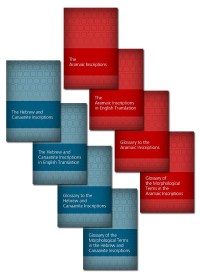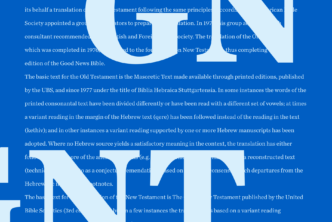As many may have heard, David Noel Freedman passed away recently. He was very prolific and very well respected among Biblical scholars. He was the editor of the highly-acclaimed Anchor Yale Bible Dictionary, which has been available in Logos Bible Software for now well over 10 years. It is one of our top-selling additional purchases, bound to offer insight and help to your studies.
Anyway, I’m not writing this post about the Anchor Yale Bible Dictionary. I’m instead writing about our Semitic Inscriptions: Analyzed Texts and Translations product, which was just released a few months ago.
Why am I mentioning this and David Noel Freedman? Well, I was reading an essay written by Freedman the other night called The Biblical Languages, from a book called The Bible and Modern Scholarship. It is a collection of papers presented at the 100th meeting of the SBL (back in 1965). In the essay, Freedman notes the importance of inscriptional evidence for the study of Biblical languages:
Non-biblical manuscripts of a similar genre which are dependent upon or related to biblical materials may offer help in the interpretation of difficult passages, or may help to clear up grammatical, syntactic, or lexicographical problems through the use of the same or related terms in different contexts. The possibilities are practically unlimited, so that the discovery of inscribed texts almost always results in some positive gain in the interpretation of biblical passages. That is why the search for inscriptions remains the principle objective of biblical archaeologists. And the relative paucity of written materials turned up in Palestine has only increased the avidity of excavators. Practically every Hebrew inscription found, however brief, has contributed in some measure to the elucidation of the Bible. Needless to say, the reverse is also true, and in greater measure. (Freedman 299, emphasis added)
So, if you needed a nudge toward Semitic Inscriptions: Analyzed Texts and Translations . . . consider yourself nudged!





